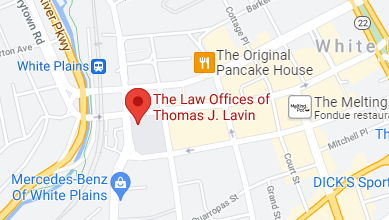What Is a Traumatic Brain Injury?
A traumatic brain injury (TBI) is a wide range of injuries to the brain that includes concussions. It’s usually caused by a violent blow to the head or by an object entering the brain or shattering the skull outside it, such as a bullet or piece of debris. The blow or object affects brain cells. Sometimes, the effect is mild and temporary, such as the victim suffering from head pain or dizziness at first.
However, there are many times when a TBI is more serious, can be life-changing, and even life-threatening. Because many TBIs happen because of various accidents, when someone else is responsible for the accident, the victim may need to file for damages from them.
What Are Legal Considerations When Pursuing Damages after a TBI?
There are many.
Statute of limitations
A statute of limitations is the legal deadline someone has to file for damages or a lawsuit. In personal injury cases, it’s usually three years from the date of the accident that caused the injury or the date the injury was diagnosed. There are a few exceptions, including when the victim is a minor. But in general, if claims aren’t filed by the end of the statute of limitations, the likelihood is they’ll be denied.
Proving Negligence
Negligence must be proven for claims to succeed. In New York, that includes four aspects, all of which must be proven.
- Duty of care. The person or property owner at the cause of the accident owed the victim the right to be safe in that location.
- Breach of the duty of care. The person or property owner did not uphold the duty of care.
- Causation. This can be the most difficult to prove. The victim must prove that the breach of duty of care directly led to their injury.
- Damages. The injuries caused real damage, including financial (medical bills, lost wages, etc.), to the victim.
While this seems straightforward, it can be complicated depending on the circumstances of each case. That’s one reason why it’s highly advisable to work with an experienced personal injury attorney when negligence must be proved.
Comparative Negligence
Another legal consideration is New York’s comparative negligence law. This type of law addresses what happens when more than one person is at fault in an accident that leads to injury. Each state has its own formula it follows. In New York, pure comparative negligence is followed. That states that even if the victim is found 99% at fault for the accident that caused their injury, they can still file for 1% of the damages.
For example, a driver enters an intersection while speeding and strikes a bicyclist. The cyclist is thrown and suffers a TBI. But the bicyclist entered the intersection on a red light. The driver may be found 70% at fault, and the cyclist 30%. If the damages awarded to the cyclist were $10,000, they’d receive $7,000 instead.
What Medical Evidence Is Needed to Pursue a TBI Claim?
The first thing to understand is that even if someone feels largely fine after an accident and isn’t convinced they suffered a TBI, they should still have a doctor check them out as soon as possible.
Not all TBIs appear severe at first, but they can worsen and even become dangerous. If it’s diagnosed later, the party being sued for damages may try to claim it’s not related to the previous accident.
That medical visit can provide critical evidence, including medical records confirming the diagnosis and any test results, such as a CT or MRI. If a neuro specialist is brought in to do cognitive tests, those results also matter.
There’s other evidence that, while not directly medical, is important in the overall investigation and claims process. These include:
- Police reports. If you can, at the time of the accident, call the police to file a report. The police report could be important evidence, such as conditions at the accident site and eyewitness evidence.
- Photos and video. If you can, use your phone to take photos and videos of the accident site.
- Surveillance video. Look to see if any buildings nearby, commercial or residential, might have security cameras that filmed the accident. These can be invaluable at times.
- Receipts. These show out-of-pocket costs due to the TBI, and pay stubs or tax returns show lost wages.
- Expert testimony. Experts can re-create accidents to show more clearly what might have happened.
What Should I Do if I Suffered a Traumatic Brain Injury in an Accident?
Call the Law Offices of Thomas Lavin at 718-829-7400 for a free case evaluation. Traumatic brain injuries can have wide-ranging effects, including many long-term or even permanent conditions.
We can work through the specifics of your accident and subsequent TBI and work out an approach for filing for damages. These are complex cases, and we’re here to support you during your recovery and help you toward financial recovery as well.
Something not to do: Enter discussions with the attorney or insurance representative of the party you’re seeking damages from. Because of New York’s comparative negligence laws, they’ll want to put as much blame on you for the accident as they can. They might also try to coerce you to accept a lower settlement than you otherwise might receive. Don’t speak with them; just forward communications to your attorney.





